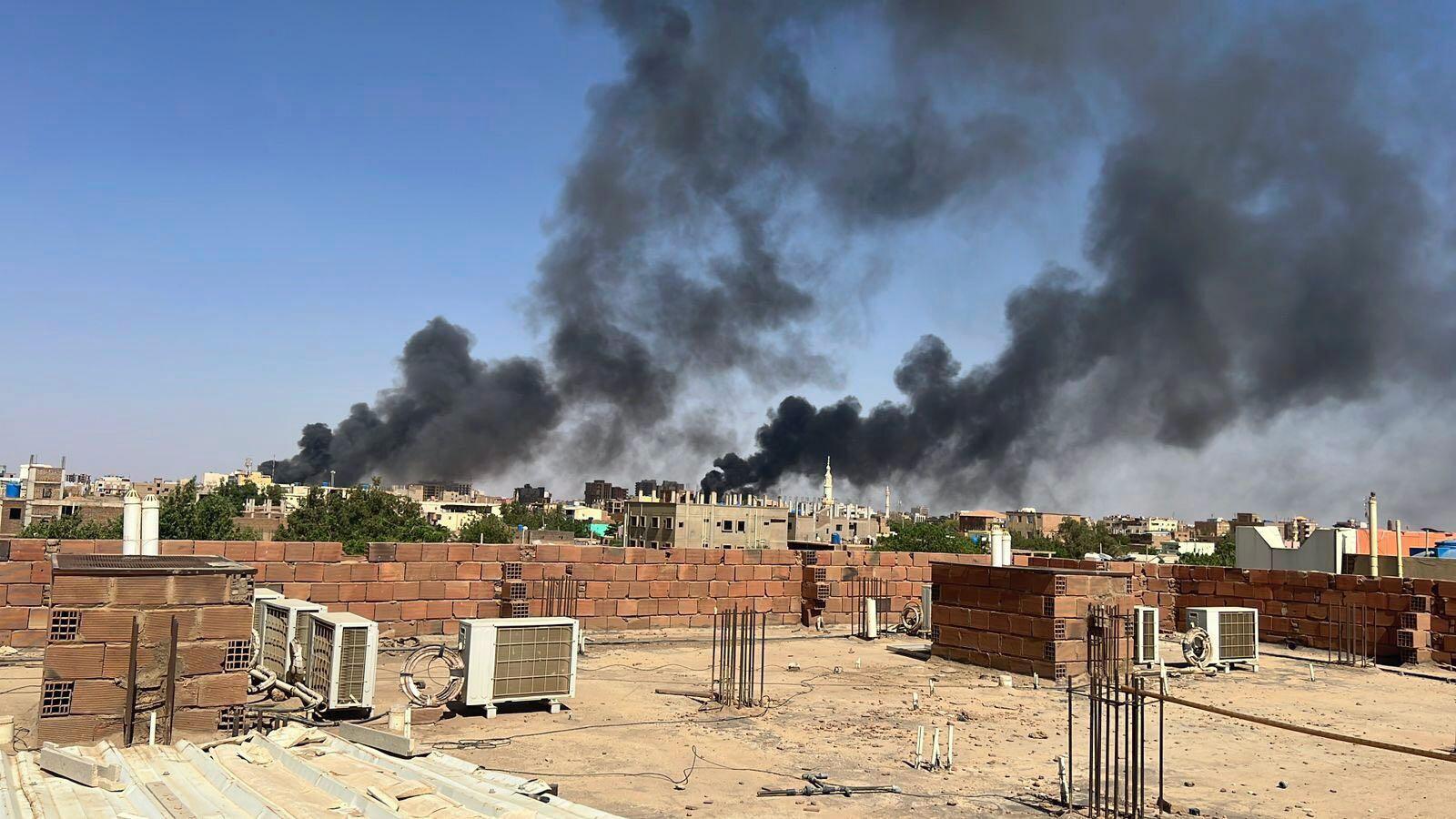The fighting between Sudan’s rival armed forces entered its seventh day on Friday, despite efforts by the international community, including the United States, to push for a ceasefire ahead of the Muslim holiday of Eid.
Hundreds of people have been killed, and the impact on civilians and local infrastructure is devastating. As the number of wounded and injured civilians rises, hospitals have been unable to cope.
“The conflict affects hospitals so badly because many of them lack the simple tools and equipment to treat injured people,” said Osama Abubakr Osman, of the Sudanese Red Crescent Society, in Khartoum, adding that other challenges include unstable electricity and fuel shortages.
Dr. Alaa Eldin Awad Nogud, a surgeon in Khartoum and spokesperson for the Sudanese Professionals Organization, one of the lead pro-democracy organizations that’s been calling for civilian rule, said that medical workers have been cut off from their facilities.
“We are right now approaching a complete shutdown of the health system because of continuous firing and bombing in the streets in Khartoum,” he said, adding that the hospital he worked at had also been damaged in the fighting.
Ambulances have been unable to get to the wounded, meaning corpses have been left on the streets.
“These dead bodies in the streets are starting to decompose and this will make a very big health disaster if we couldn’t get a respectable, long ceasefire,” Nogud said.
Humanitarian organizations have been calling for the fighting to halt and for the establishment of a humanitarian corridor to allow medical workers to access the wounded, and for civilians to evacuate hostile areas.
“These routes should be safeguarded. They should guarantee the protection and safety of relief workers,” Osman said as gunfire sounded in the background.
Health workers are mobilizing to fill the gaps in care by sharing lists and contact details of doctors in different specialities.
Medical workers are also organizing themselves by neighborhoods, said Mohamed Ahmed Gibril, a doctor in Khartoum.
“So, if someone needs any type of intervention that’s not hospital based, we can go to their house,” he said.
He added that there’s a website where residents can post their emergency needs and phone numbers — allowing strangers to help them.
Online, one resident sought help for getting a tetanus shot for a bullet wound. Another requested a vehicle to evacuate their family members to a safe area.
With each passing day, the number of safe areas dwindles.
Gibril’s area was safe until this morning, he said, when a missile fell on a house nearby. He rushed out to see what happened and found a girl crying in the streets, screaming.
“She said ‘my mom is inside.’ I went inside the house. It was a disaster.”
Gibril said he provided first aid to the woman, and tried to look for a hospital — but found none that were open, and she died.
“If we had been able to reach any type of health facility, maybe she would have been saved,” Gibril said.
